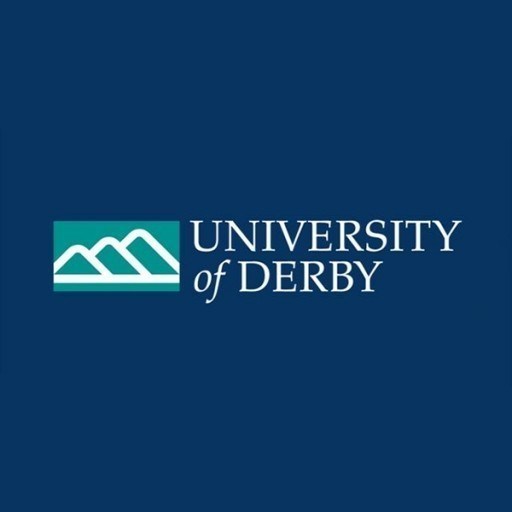Photos of university / #dukeuniversity
Experimental and Documentary Arts at Duke University offers an innovative interdisciplinary program that combines creative practice, critical analysis, and historical understanding of image-making, storytelling, and media. This program is designed for students passionate about exploring the artistic, cultural, and social implications of documentary and experimental media, including photography, video, sound, and installation art. Students engaging in this degree develop skills in conceptual thinking, technical proficiency, and reflective critique, empowering them to produce compelling works that challenge conventions and innovate within the fields of documentary and experimental arts.
The curriculum emphasizes both the technical aspects of media production and the theoretical frameworks that underpin contemporary artistic practices. Students have opportunities to learn various forms of media creation, including digital imaging, film editing, sound design, and interactive media, as well as to study the history and ethics of documentary storytelling. This comprehensive approach encourages students to experiment with form and content, fostering a deep understanding of how visual and auditory media influence social discourse and individual perception.
Throughout the program, students are encouraged to critically examine the role of media in society, exploring topics such as identity, memory, justice, and representation. They engage with a diverse array of projects, often collaborating across disciplines and engaging with communities, archival materials, and contemporary issues. The program also offers access to state-of-the-art facilities, including media labs, editing suites, and exhibition spaces, supporting hands-on learning and experimentation.
Faculty members are experienced artists, researchers, and critics dedicated to mentoring students as they develop unique artistic voices. Graduates of the Experimental and Documentary Arts program are prepared for careers in independent filmmaking, photojournalism, arts administration, curatorial work, or further academic research. They leave equipped with a robust portfolio, critical insight, and the technical expertise necessary to contribute meaningfully to the evolving fields of documentary and experimental media. This program fosters a dynamic environment where creativity, critical thinking, and social engagement intersect, inspiring students to leverage media arts as powerful tools for personal expression and societal change.
The MFA in Experimental & Documentary Arts is a two-year degree program requiring 15 courses over 4 semesters: 10 required (Core) courses in prescribed sequence and 5 electives.
- 5 Studio courses: Documentary Fieldwork, Experiments in the Moving Image, Computational Media, Thesis Writing Workshop and Thesis Project Workshop.
- 5 Seminars: Continuity and Change in Experimental and Documentary Arts, Critique I-IV.
- 5 Electives complete the requirements, with one required as supporting thesis research and preparation ("Methods").
Each student’s culminating project will be presented in a second year Spring MFA Exhibition. A written thesis on the project will also be required.
YEAR 1 – FALL
- Documentary Fieldwork (3 credits) Exploration of the range of mediums and approaches to community-based documentary work that expresses both cultural/political realities through a personal point of view.
- Computational Media (3 credits) Experimental computational media techniques for graphics interactivity, and data visualization. Final project required.
- Elective: Open (3 credits)
- Critique I (1 credit)
YEAR 1 – SPRING
- Experiments in the Moving Image (3 credits) Techniques and methodologies of experimental film and video production. Final project required.
- Continuity and Change in Experimental and Documentary Arts (3 credits) Historical and conceptual survey of documentary studies with attention to experimental and artistic practices. Final paper required.
- Elective: Open (3 credits)
- Critique II (1 credit)
SUMMER
- Individual Thesis Research
YEAR 2 – FALL
- Thesis Writing Workshop (3 credits)
- Elective: "Methods" (3 credits) An elective supporting thesis research and preparation.
- Elective: Open (3 credits)
- Critique III (1 credit)
YEAR 2 – SPRING
- Thesis Project Workshop (3 credits) Production and completion of thesis project.
- Elective: Open (3 credits)
- Critique IV (1 credit)
- Hold a bachelor's degree (or the equivalent to a U.S. bachelor's degree) from an accredited institution.
- Submit scanned electronic transcripts from all post-secondary school education.
- Submit three letters of recommendation.
- Submit a Statement of Purpose which includes a personal history detailing one's practice and relationship to documentary and experimental visual arts, as well as what the applicant seeks to achieve through participation in the program. We encourage you to include specific information on past endeavors as well as projects that you wish to undertake during your study.
- International applicants must also provide official scores for the Test of English as a Foreign Language (TOEFL) or the International English Language Testing System (IELTS).
- Please note, the Graduate Record Examination (GRE) is not required for admission to the MFAEDA.
- Applicants may submit a portfolio of any combination of media for consideration.
- Submissions of 2 dimensional, 3 dimensional and installation works are limited to a maximum of 25 images.
- Submissions of time, sound and computational media are limited to 10 minutes total, and may include multiple projects.
- Please include a brief narrative description of each body of work, and label all images clearly with title, year, medium, dimensions, format, and production role where applicable.
- If desired, applicants may include URLs where additional related work may be viewed.
- Digital materials (CDs or DVDs), and analog formats (VHS, 16mm, slides, etc.) may be accepted by mail if necessary. To enquire, please contact the program in advance. Materials sent by mail without prior authorization will not be considered.
Scholarships
Incoming students may be eligible for financial support in the form of teaching assistantships, program fellowships, or tuition awards. However, there is not sufficient aid to cover tuition in full. In addition to any financial awards they may receive, most students finance their education through a combination of loans, grants, and work study.
The Experimental and Documentary Arts program at Duke University is an interdisciplinary field that explores the intersections of art, technology, and storytelling through innovative practices. This program integrates traditional documentary techniques with experimental approaches, allowing students to develop a diverse skill set in visual storytelling, media production, and critical analysis. Students engage with a wide range of media, including digital video, photography, sound, and installation art, fostering a comprehensive understanding of how to document and interpret the human condition in contemporary society. The curriculum emphasizes hands-on projects complemented by theoretical coursework, encouraging students to critically analyze the socio-cultural implications of their work. The faculty comprises experienced artists, filmmakers, and scholars dedicated to mentoring students through individual projects, collaborative endeavors, and exhibitions. The program aims to prepare graduates for careers in documentary filmmaking, multimedia art, cultural preservation, and media critique, as well as for further academic research. Facilities include state-of-the-art editing suites, media labs, and exhibition spaces, providing students with resources to produce, showcase, and critique their work in professional settings. Collaboration with local communities and institutions is a core aspect of the program, emphasizing ethical engagement and social impact. Overall, the Experimental and Documentary Arts program at Duke University fosters creative innovation, technical proficiency, and critical reflection, equipping students to contribute meaningfully to the evolving landscape of documentary and experimental media arts.








